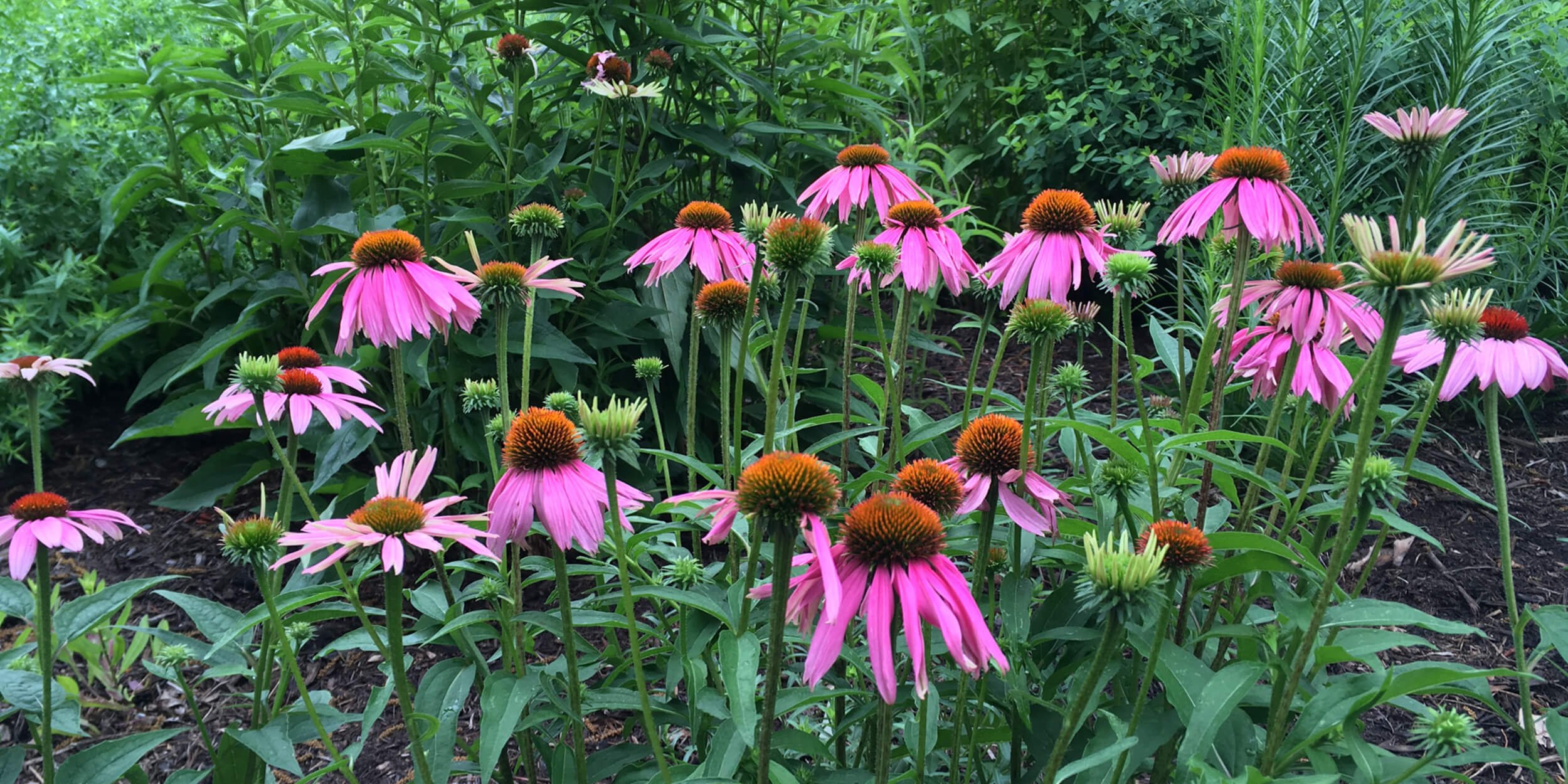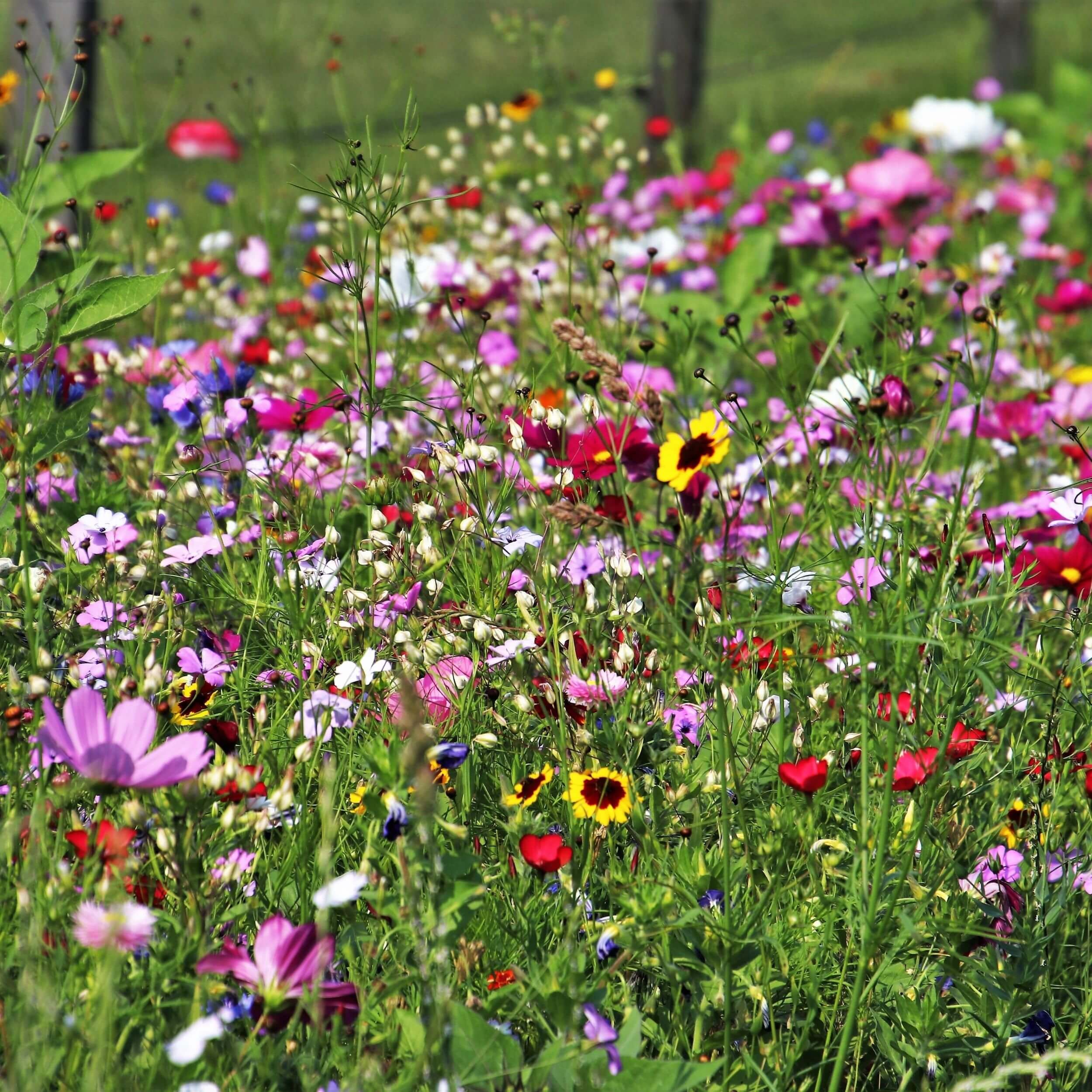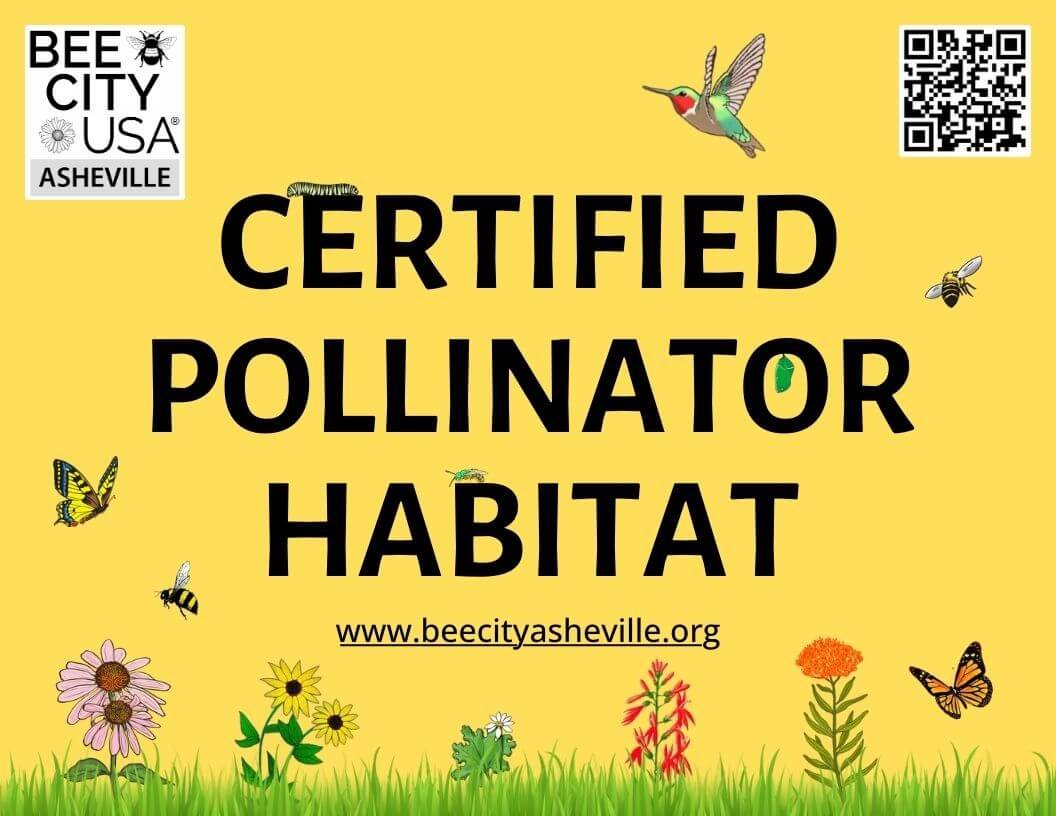
Certify Your Habitat
Photo: Eastern purple coneflower (Echinacea purpurea)
Join a community of dedicated pollinator guardians and let your neighbors know the fabulous fun you’re up to with Native Pollinator Garden Certification.
200+ Gardens Certified
Any garden can become a native pollinator habitat — even a patio pot.
Our Native Pollinator Garden Certification program allows residents in Western North Carolina to certify their garden as pollinator habitat. By displaying your optional habitat sign, you let your neighbors know that pollinators are important and show them what they can do to help.
Our program has four tiers depending on the size and complexity of the garden. You can explore the criteria for each tier below.
It’s not a competition, though. We're all in this together—us and the pollinators.
In Asheville’s River Arts District (RAD), you can visit a large pollinator garden and meadow planted by Pollenteers in 2021.
“Inventorying my plants and compiling info to apply has been so helpful in learning more about both the ecological value of native plants and which plants are actually native. I think it's wonderful that your organization spurs such curiosity and self-education.“
Lori Medley Swanberg
Would you like to estabish or steward pollinator habitat on City of Asheville property? Get started by completing this preapplication.
How does it work?
Apply for certification and order your sign.
Your $10 certification fee helps keep this program running. You’ll also have the option to purchase sturdy sign ($35) to post in your habitat.
Tell us about your habitat.
Next, complete the application, capturing the many ways your garden provides habitat for pollinators. Is it an Egg, Caterpillar, Chrysalis or Butterfly habitat?
Enjoy a yard full of pollinators!
As you watch bees, butterflies, and hummingbirds in your garden, you can share the joy and raise awareness in your neighborhood.

Habitat Certification Tiers
As your garden grows you can move up in the tiers. Once again, this is not a competition—every single bit of habitat is helpful!
See the WNC Native Plant Lists for ideas for starter plants and more!
Tier 1: Egg
For the beginner gardener and/or those with spatial constraints. Feasible for an apartment balcony or pots on a small patio.
Egg Requirements:
6 native perennial flowering species
Water source
Remove invasives
Avoid pesticides
Tier 2: Caterpillar
Attainable for beginners and easy for seasoned pros. Don't be discouraged by the tree/shrub elements – there are plenty of smaller, affordable options.
Caterpillar Requirements:
2 native tree, shrub or vine species
6 native perennial herbaceous species
At least 2 blooming in spring, summer and fall
Water source
1 form of shelter
Remove invasives
Avoid pesticides
Limit artificial outdoor lighting
Tier 3: Chrysalis
If you're shooting for this level, ideally you already have a successful pollinator garden and might just need to add a few elements to become certified.
Chrysalis Requirements:
3 native tree, shrub, or vine species
9 native perennial herbaceous species
At least 3 blooming in spring, summer and fall
Water source
2 forms of shelter
Remove invasives
Avoid pesticides
Limit artificial outdoor lighting
Tier 4: Butterfly
Your garden is a pollinator magnet! You've put in a lot of time and energy. You provide a wide variety of food and shelter for a diversity of pollinators.
Butterfly Requirements:
5 native tree, shrub, or vine species
15 native perennial herbaceous species
At least 5 blooming in spring, summer and fall
Water source
3 forms of shelter
Remove invasives
Avoid pesticides
Limit artificial outdoor lighting
Carpenter bee on passionvine. Photo: Courtland White
WNC Native Plant Lists
Want to plant more native flowers and host plants, but not sure where to start? Our Native Plants page helps you find the perennials, shrubs, and trees you need.
Bumble bee on Monarda. Photo: Amy Landers
Pollinator Gardening Principles
A full-fledged pollinator habitat has many elements—here are the elements we've deemed integral to each habitat and why.
Certify Your Pollinator Garden Webinar
Ruth Gonzalez of Reems Creek Nursery and the Bee City USA - Asheville Leadership Committee delves into certifying your garden in this video. Enjoy!
Certified Garden Recognition
Each certified gardener receives a digital certificate recognizing your contributions to healthy habitat to support pollinators and making our home a better place to live.
You can also choose to add your garden to the interactive map.
Optionally, you can order an 11" x 8.5" composite aluminum garden sign. Not only do they look awesome, these signs are our best tools for spreading awareness, helping to shift the paradigm away from massive turf lawns.









